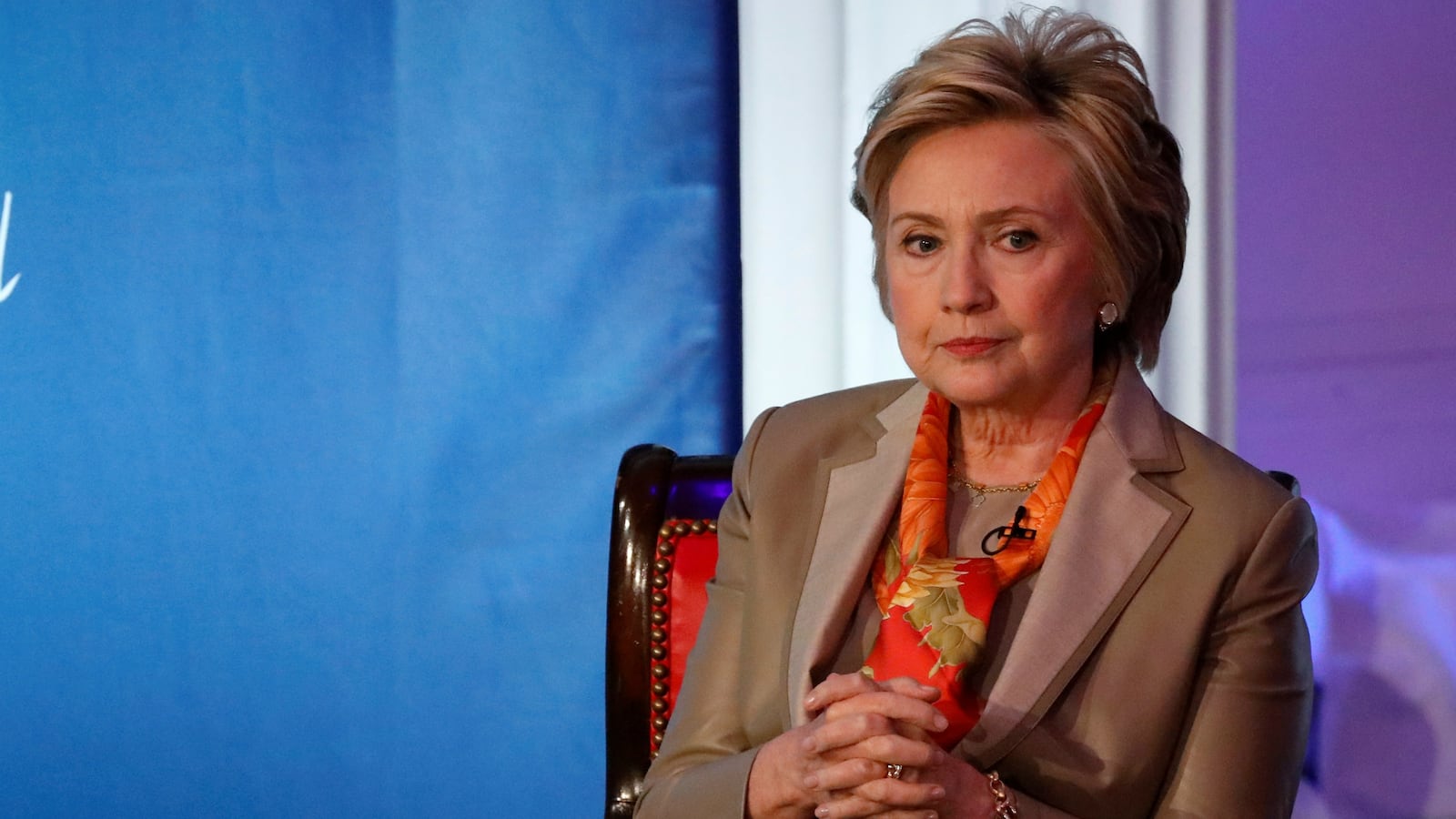A Republican operative who reportedly tried to obtain Hillary Clinton’s hacked emails from Russia killed himself inside a hotel room in May, just days after speaking with a Wall Street Journal reporter about his efforts during the 2016 election.
Public records unearthed by the Chicago Tribune show that Peter W. Smith, 81, left a suicide note and was found with a bag over his head and a helium source on May 14, just 10 days after he gave an interview to The Wall Street Journal.
In his suicide note, according to police, Smith wrote that he decided to take his life due to “recent bad turn in health since January, 2017” and because his $5 million life insurance policy was expiring. Smith also wrote that “no foul play whatsoever” led to his death. Smith’s cause of death was listed as “asphyxiation due to displacement of oxygen in confined space with helium.”
The hotel where Smith was staying—the Aspen Suites in Rochester, Minnesota—is frequented by Mayo Clinic patients, but a spokeswoman did not confirm to the Tribune whether Smith was a patient there, citing privacy statutes.
Shane Harris, the Journal reporter who interviewed Smith, said Thursday night that he “had no indication that [Smith] was ill or planning to take his own life.”
An employee of Rochester Cremation Services who helped remove Smith’s body from the hotel room said he saw a tank inside the room. “When I got there and saw the tank, I thought, ‘I’ve seen this before,’ and was able to put two and two together,” the employee told the Tribune.
Harris, a former Daily Beast reporter, wrote in his initial story that U.S. intelligence officials believed the Russians discussed how to send Clinton’s emails to Michael Flynn, President Trump’s former national security adviser, through an “intermediary.”
Smith was a key source in one of the Journal’s biggest scoops of the Trump presidency, which showed that in his quest for Clinton’s 30,000 deleted emails, he reached out to multiple hacker groups, including at least two that he believed had ties to the Russian government.
Although he did not work for the Trump campaign, Smith dropped Flynn’s name when contacting the hacker groups, claiming that he was in contact with the future national security adviser about his hunt for the emails.
“He said, ‘I’m talking to Michael Flynn about this—if you find anything, can you let me know?’” Eric York, a computer-security expert who hunted hacker forums for potential leads on the emails, told the Journal.
“We knew the people who had these were probably around the Russian government,” Smith said in the interview with the Journal, which took place 10 days before his death.
Smith was a private-equity executive by trade, but had worked as a longtime opposition researcher for conservative campaigns in the past. In the early ’90s, Smith helped lead the charge in publicizing accusations by Arkansas state troopers that Bill Clinton, then the state’s governor, had enlisted them to help arrange assignations with dozens of women who were not his wife, from whom they hid the alleged affairs (an accusation that Clinton, as a candidate and as president, denied). The ensuing scandal, known as “Troopergate,” nearly sank Clinton’s 1992 presidential campaign.
Flynn has not commented on Smith’s search for the emails, or his potential involvement thereof, and Trump campaign officials have asserted that if Flynn had coordinated with Smith’s efforts, it was not in his capacity as an adviser to the future president’s campaign.
Flynn was fired in February after just a few weeks on the job as national security adviser, after it was revealed that he misled Vice President Mike Pence about the content of his conversations with Russia’s U.S. ambassador.
Multiple congressional committees and a federal special counsel are investigating Russian interference in the 2016 election, and whether Trump associates colluded with Russian operatives.






